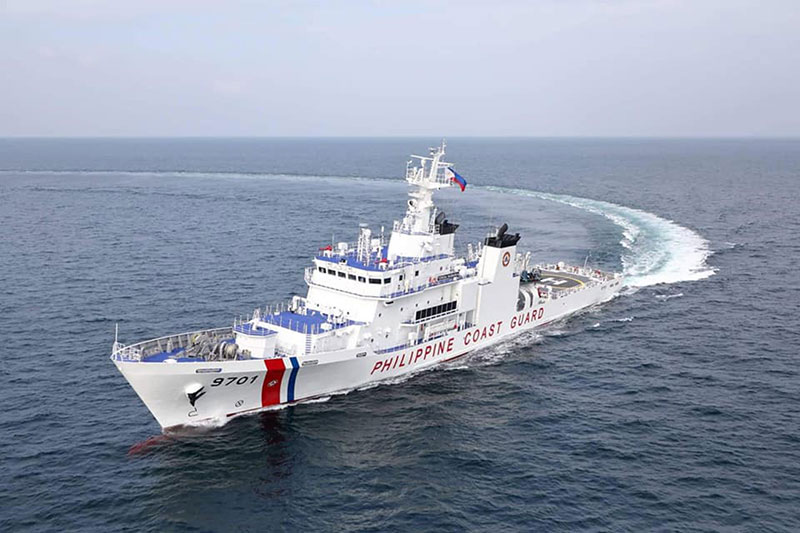Philippine, Chinese diplomats hold talks on their sea dispute in Beijing

PHILIPPINE and Chinese envoys on Wednesday held diplomatic talks in Beijing on how to ease sea tensions, even as both sides insist on upholding their sovereignty rights over features in the South China Sea, including Sabina Shoal.
In a statement on Thursday, Manila’s Department of Foreign Affairs (DFA) said Undersecretary Ma. Theresa P. Lazaro met with Chinese Vice Foreign Minister Chen Xiaodong in Beijing, where the Philippine side reiterated that the shoal, the site of recent collisions between their coast guard vessels, is part of the Philippines’ exclusive economic zone.
“Both sides also reaffirmed the bilateral consultation mechanism as a forum for promoting maritime dialogue and enhancing bilateral cooperation while agreeing to continue engagement through diplomatic channels,” it added.
In a separate statement, the Chinese Foreign Ministry said both countries had a “candid and in-depth exchange of views,” with Beijing renewing its call for Manila to remove an “illegally anchored” vessel at Sabina.
“China will firmly safeguard its sovereignty and the seriousness and effectiveness of the Declaration on the Conduct of Parties in the South China Sea (DoC),” it added.
Both parties committed to boost cooperation on hotline mechanisms and marine, scientific partnerships, according to the DFA. Ms. Lazaro and her Chinese counterpart also explored ways to “lower the tension in the area.”
The Southeast Asian nation has anchored its biggest coast guard vessel at Sabina Shoal since April to monitor what it suspects to be China’s small-scale reclamation activities. This has angered China, turning the shoal into their latest flashpoint in the disputed waterway.
The Sabina Shoal, which China calls Xianbin Reef, lies 150 km (93 miles) west of the Philippine province of Palawan, well within its exclusive economic zone. Manila calls it Escoda Shoal.
The two nations have traded accusations of intentional ramming of each other’s vessels in a series of clashes last month, just after reaching a pact on resupply missions to a beached Filipino naval ship at Second Thomas Shoal.
China claims sovereignty over most of the China Sea, overlapping into maritime zones of Brunei, Indonesia, Malaysia, the Philippines, and Vietnam.
In 2016, a United Nations-backed tribunal in the Hague voided China’s expansive and historical claims for being illegal. Beijing has rejected the ruling.
A Philippine inter-agency task force handling maritime disputes with China has accused a Chinese vessel of deliberately ramming the Philippines’ largest coast guard vessel named BRP Teresa Magbanua thrice near Sabina Shoal.
The Chinese side made a similar claim, with Coast Guard spokesperson Liu Dejun saying the smaller Philippine Coast Guard vessel had deliberately collided with their ship.
Sabina Shoal has been a staging ground for Philippine resupply missions to Second Thomas Shoal, where it grounded a World War II-era vessel in 1999 to serve as an outpost for a handful of Filipino troops.
Both countries held the first round of bilateral talks this year in Manila, where they agreed on a “provisional arrangement” on resupply missions at Second Thomas Shoal and new lines of communications to improve their handling of sea disputes.
The Chinese Foreign Ministry earlier said the Philippines should not “backpedal” or do anything that would complicate their sea dispute.
In his third address to Congress in July, Philippine President Ferdinand R. Marcos, Jr. said the Philippines would continue to find ways to de-escalate tensions in the waterway without compromising its position or principles. “The Philippines cannot yield. The Philippines cannot waiver,” he said.
His government has filed 176 diplomatic protests against China, 43 this year, DFA spokesperson Ma. Teresita C. Daza said on Sept. 3.
Beijing insists it has sovereignty over most of the South China Sea based on its old maps and has deployed hundreds of coast guard vessels deep into Southeast Asia to assert its claims, disrupting offshore energy and fishing activities of its neighbors including Malaysia and Vietnam. — John Victor D. Ordoñez



